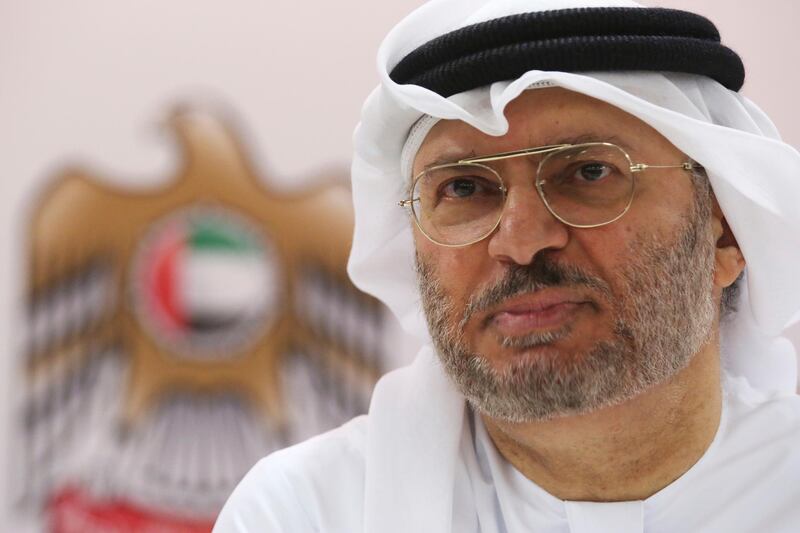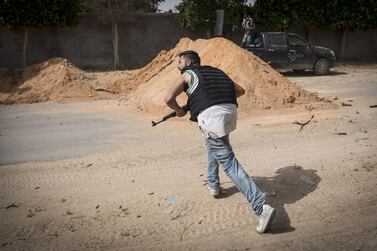Dr Anwar Gargash, the UAE Minister of State for Foreign Affairs, said Libya should prioritise fighting terrorism to create stability in the drawn out crisis in the North African state.
The prospect of a resolution calling for a ceasefire is off the table weeks after Field Marshal Khalifa Haftar launched an offensive to take the capital, Tripoli.
The Libyan National Army Commander had discussed ongoing counter-terrorism efforts with the US President Donald Trump and seemed to be supported by both the US and Russia.
However, talks broke down between his side and the Prime Minister Fayez Al Sarraj’s internationally recognised Government of National Accord.
For months, Ghassan Salame, the UN Secretary General's special envoy for Libya, has been working to bring the sides together.
Both Field Marshal Haftar and Prime Minister Al Sarraj met in the UAE earlier this year and agreed on the need to move towards elections and Mr Salame’s peace push seemed on track. But the new offensive and the failing of the UN Security Council to present a united position has pushed Mr Salame’s efforts off the table.
“Priority in Libya to counter extremism/ terrorism & support stability in long drawn out crisis. Abu Dhabi agreement offered opportunity to support UN led process. Meanwhile extremist militias continue to control capital and derail search for political solution,” said Dr Gargash in a tweet.
Libya's National Oil Corporation (NOC) chief Mustafa Sanalla warned that "terrorist organisations" could infiltrate the country's oilfields, Al Hurra TV cited him as saying on its Twitter feed.
On Monday, an armed group attacked Libya's largest oilfield but was repelled after clashes with its protection force.
The UN says armed clashes in the Libyan capital Tripoli along with random shelling and explosives placed on roads are hampering the evacuation of civilians and the delivery of aid.
Forces loyal to Mr Haftar launched an offensive to take Tripoli in early April and are battling militias loosely allied with the UN-supported government based there.
UN spokesman Stephane Dujarric said on Wednesday that since the conflict began, 102 civilian casualties have been verified, including 23 fatalities, and over 45,000 people have fled their homes, according to the UN migration agency.
He said the hostilities are also affecting health workers and health facilities.
UN officials report that at least four health workers have been killed and 11 ambulances have been damaged or destroyed in the conflict, Mr Dujarric said.







